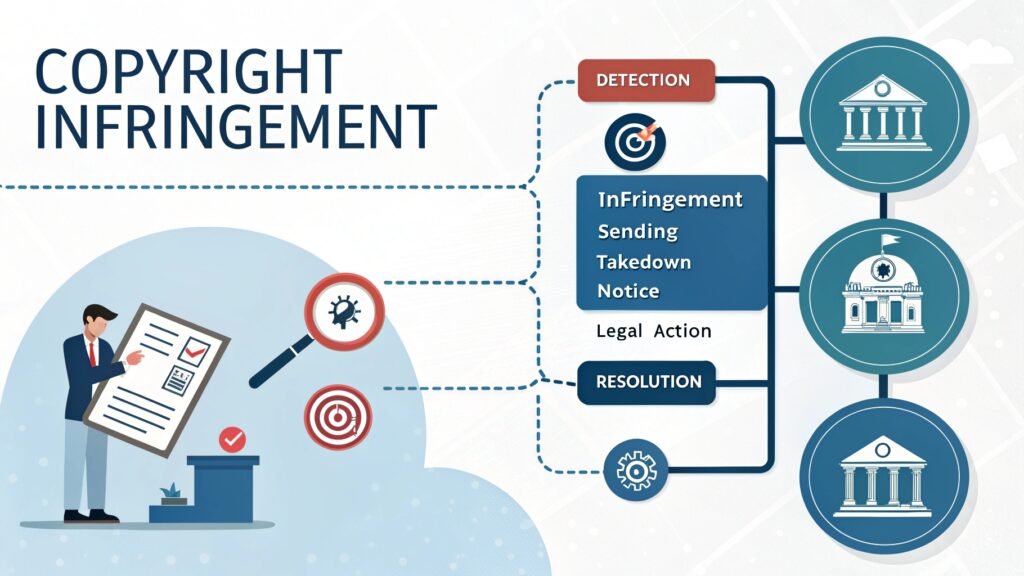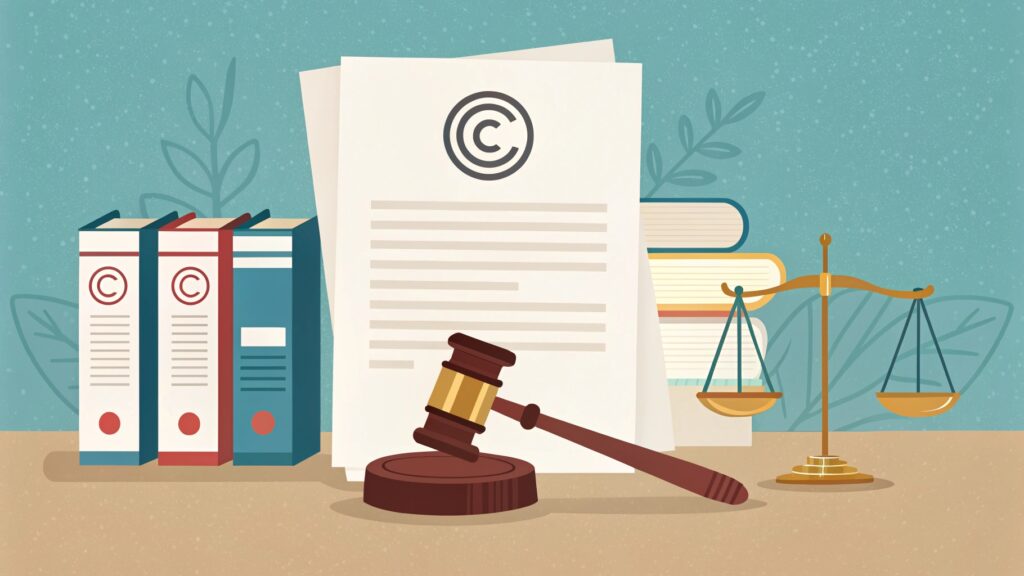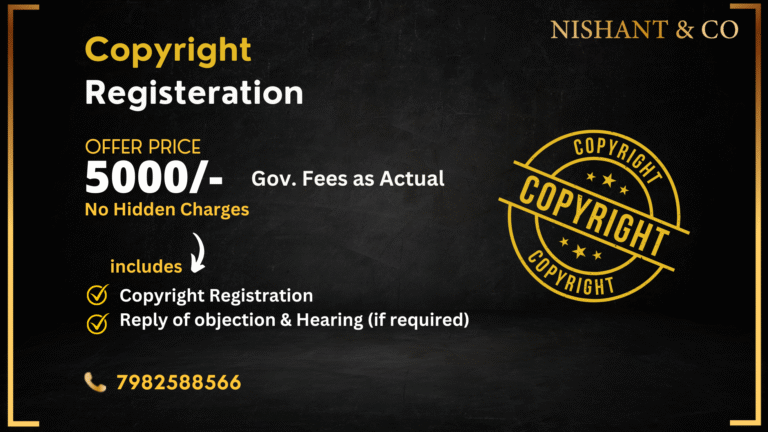Copyright
Copyright Litigation
Complete Copyright Infringement Process in India
Share Post :
Understanding Copyright Infringement
Copyright infringement occurs when someone uses, copies, distributes, or sells copyrighted work without the permission of the owner. This applies to literary works, music, films, software, artistic works, etc.

Steps to Take Against Copyright Infringement in India
Step 1: Identify the Infringement
- Gather evidence of unauthorized use (screenshots, URLs, physical copies, etc.).
- Check if the work qualifies for Fair Use (e.g., educational use, reviews, criticism).
Step 2: Send a Legal Notice
- A cease-and-desist legal notice is sent to the infringer, demanding that they stop using the copyrighted work.
- This is often the first step to resolve the issue without litigation.
Step 3: File a Complaint with Authorities
- If the infringement continues, file a complaint with the police or cybercrime cell under:
- Section 63 of the Copyright Act, 1957 (Punishment for infringement).
- Section 65 (Knowingly using pirated copies).
- The police can seize infringing materials under Section 64.
Step 4: File a Civil Suit for Damages
- If necessary, file a case in District Court or High Court.
- The court may grant:
- Injunction: Orders to stop infringement immediately.
- Damages/Compensation: Monetary relief for losses.
- Seizure of Copies: Confiscation of unauthorized copies.
Step 5: Criminal Action (If Required)
- Copyright infringement is a criminal offense in India.
- The infringer may face:
- Imprisonment: 6 months to 3 years.
- Fine: ₹50,000 to ₹2,00,000.
- This is applicable in cases of commercial piracy or willful infringement.

Conclusion
- Copyright infringement is a serious offense, and legal remedies are available through both civil and criminal actions.
- The fee structure varies depending on the complexity of the case and lawyer fees.
- Most cases are settled at the legal notice or police complaint stage, avoiding long court trials.

